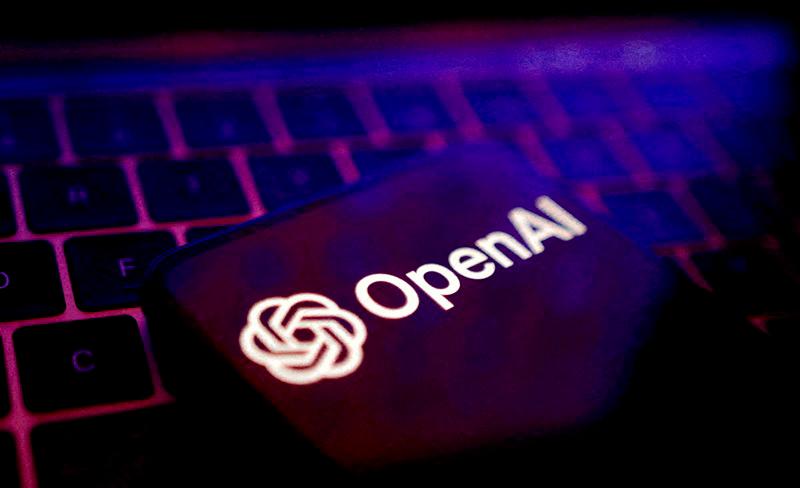A consortium led by Elon Musk said on Monday it has offered $97.4 billion to buy the nonprofit that controls OpenAI, another salvo in the billionaire's fight to block the artificial intelligence startup from transitioning to a for-profit firm.
Musk’s bid is likely to ratchet up longstanding tensions with OpenAI CEO Sam Altman over the future of the ChatGPT maker at the heart of a boom in generative AI technology. Altman on Monday promptly posted on X: “no thank you but we will buy twitter for $9.74 billion if you want.”
Musk cofounded OpenAI with Altman in 2015 as a nonprofit, but left before the company took off. He founded the competing AI startup xAI in 2023. Musk, the CEO of Tesla and owner of tech and social media company X, is a close ally of President Donald Trump. He spent more than a quarter of a billion dollars to help elect Trump, and leads the Department of Government Efficiency, a new arm of the White House tasked with radically shrinking the federal bureaucracy. Musk recently criticized a $500 billion OpenAI-led project announced by Trump at the White House.
OpenAI is now trying to transition into a for-profit from a nonprofit entity, which it says is required to secure the capital needed for developing the best AI models.
Musk sued Altman and others in August last year, claiming they violated contract provisions by putting profit ahead of the public good in the push to advance AI. In November, he asked a U.S. district judge for a preliminary injunction blocking OpenAI from converting to a for-profit structure.
Musk's lawsuit against OpenAI and Altman says the founders originally approached him to fund a nonprofit focused on developing AI to benefit humanity, but that it was now focused on making money.
“It’s time for OpenAI to return to the open-source, safety-focused force for good it once was,“ Musk said in a statement on Monday. “We will make sure that happens.”
Musk and OpenAI backer Microsoft did not immediately respond to requests for comment.
“Musk’s bid puts another wrinkle into OpenAI’s quest to remove the nonprofit’s control over its for-profit entity,“ said Rose Chan Loui, executive director of the UCLA Law Center for Philanthropy and Nonprofits.
“This bid sets a marker for the valuation of the nonprofit’s economic interests,“ she said. “If OpenAI values the nonprofit’s interests at less than what Musk is offering, then they would have to show why.”
The consortium led by Musk includes his AI startup xAI, Baron Capital Group, Emanuel Capital and others.
XAI could merge with OpenAI following a deal, according to the Wall Street Journal which first reported Musk's offer earlier on Monday. XAI recently raised $6 billion from investors at a valuation of $40 billion, sources have told Reuters.
'THROWING A WRENCH'
“This (bid) is definitely throwing a wrench in things,“ said Jonathan Macey, a Yale Law School professor specializing in corporate governance.
“The nonprofit is supposed to take money to do whatever good deeds, and if OpenAI prefers to sell it to somebody else for less money, it’s a concern for protecting the interests of the beneficiaries of the not-for-profit.” OpenAI was valued at $157 billion in its last funding round, cementing its status as one of the most valuable private companies in the world. SoftBank Group is in talks to lead a funding round of up to $40 billion in OpenAI at a valuation of $300 billion, including the new funds, Reuters reported in January.
Aside from any antitrust implications, a deal this size would need Musk and his consortium to raise enormous funds.
Musk's stock in Tesla is valued at roughly $165 billion, according to LSEG data, but his leverage with banks is likely to be thin after his $44 billion buyout of what was then called Twitter in 2022.
To finance such a bid, Musk could sell part of his stake in Tesla or take a loan against his stake, or use his stake in rocket company SpaceX that is worth tens of billions of dollars as collateral, according to an uninvolved investment banker, who requested anonymity.
“Musk’s offer to buy OpenAI’s nonprofit should significantly complicate OpenAI’s current fundraising and the process of converting into a for-profit corporation,“ said Gil Luria, analyst at D.A. Davidson.
“The offer seems to be backed by more credible investors ... OpenAI may not be able to ignore it. It will be the fiduciary responsibility of OpenAI’s board to decide whether this is a better offer, which could call into question the offer from SoftBank.”









